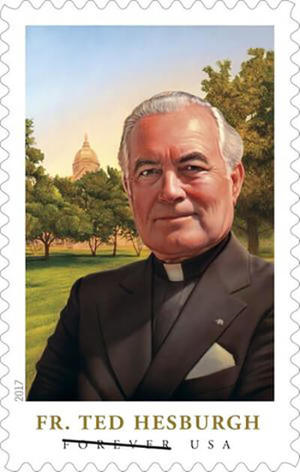 Fr
Fr
Robert Schmuhl | April 10, 2017
Each book teaches its author certain lessons.
Sometimes the vagaries of the writer’s craft become less baffling after repeatedly committing words to a page over months or years. On other occasions, the subject receiving a scribbler’s attention comes into sharper focus, even after a volume appears.
During a discussion not long ago about a book I completed last year on Father Theodore M. Hesburgh, CSC, one participant inquired, “What did your relationship with Father Hesburgh teach you?”
The question caught me off guard. Sorting through a half-century of reporter’s notes and taped interview transcripts for the project, I tried to tell what Notre Dame’s long-time president thought and did at key moments of his career at the University and in his various other responsibilities in government and public life. But my reactions, let alone what I might have learned, play a minor role in the narrative.
Yet the more I thought about the question — the response I offered at the time was, at best, rambling and unsatisfactory — the better I could see the value of setting down some specific lessons that the life I wrote about taught me.
Never stop learning. Until his final days, Hesburgh tried to keep up with current affairs and areas of inquiry he considered important. Though suffering from macular degeneration, he would have students visit his office on the 13th floor of the Hesburgh Library every day to read newspapers and other publications to him. In both his office and at his residence, he also listened to countless books on tape, most supplied by the Library of Congress, to learn about new research or studies.
Never stop listening. Hesburgh was a gifted, garrulous talker who also understood the importance of hearing from people with competing viewpoints. As Notre Dame’s chief administrator and as a member of the U.S. Commission on Civil Rights, he listened to divergent perspectives before making a decision. He often started conversations we had with a direct question: “What should I know?”
Never stop seeking. In higher education, governmental and foundation assignments, Hesburgh often worked to arrive at common ground, the place where students or citizens could come together in a spirit of shared agreement. Finding the middle course never meant compromising his moral authority. It was, however, a continuing process of building consensus amid conflicting opinions to resolve problems or issues.
Originally published by at dailydomer.nd.edu on April 10, 2017.